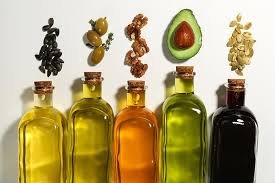Seed Oils - Should You Be Avoiding Them?
What are they, their controversy, their potential health effects, and the overall verdict.
Let’s separate myths from facts. Seed oils are EVERYWHERE and quite frankly in EVERYTHING. So it’s important to know what exactly are they, and how they could be affecting our body and overall health.
What is a Seed oil?
Seed oils are cooking oils derived from a seed of a plant, fruit or vegetable. Examples include Sunflower oil, Canola oil, Soybean oil, and Rapeseed oil.
The History of Seed oils:
Seed oils were originally a byproduct of the industrial processes, specifically cottonseed oil. In the 1800’s, cotton producers had tons of leftover seeds they didn’t know what to do with them. Eventually they discovered they could extract oil from them, Cottonseed was one of the first to be mass produced and sold to the global market. Crisco (Crystallised Cotton seed oil), was marketed as a cheaper alternative to butter and lard.
Then in both World Wars when nations were rationing, companies turned to making more seed oils such as soy, corn, and canola - as they were cheaper to make and easier to ration.
Fast forward to the 1950’s-1970’s, the “fat is bad” era began. Researches began promoting the idea that saturated fats (fats typically found in butter and lard), increased the risk of heart disease. So there was a societal shift in desire towards polyunsaturated fats (found in - you guessed it - seed oils).
What’s so bad about them?
I’m glad you asked. Whilst it’s important to understand why we leaned towards seed oils during the industrial revolution and world recessions, now in the modern world we should be educated on the negative side effects of ingesting these oils:
Highly processed & refined - most seed oils are extracted using high heat, chemical solvents, and industrial methods that strip away most of the nutrients of the seed.
Prone to oxidation - the high polyunsaturated fat content makes seed oils unstable to heat, light, and air. This leads to more free radicals (contributing to inflammation).
Too many Omega 6’s - the imbalance of Omega 6 & Omega 3 leads to inflammation in the body.
Emerging research against them - numerous studies are showing patterns between the intake of seed oils and higher counts of diabetes, heart disease & obesity.
Are there any benefits to Seed oils?
Seed oils definitely stepped in to help society at times of scarcity and struggle, and although they do get a lot of bad rap (for good reason), it’s important to get the full picture:
High in polyunsaturated fats (PUFAS) - seed oils can have high counts of Omega 3 fatty acids, which is an essential fat your body does not produce on it’s own.
Rich in Vitamin E - A powerful antioxidant for the body.
Plant-Based - Suitable for vegans/vegetarians
Neutral flavours & versatility - Seed oils have a very high smoke point, making them a great choice for high-heat cooking and frying. They are also popular in baked and processed foods as they do not affect the taste of the end product.
Final verdict
It’s important to consider context before radicalising a whole food group. Whilst seed oils are not the best choice, and over consuming them definitely comes with high risks, having them in moderation is a more nuanced, realistic, and well balanced approach.
Pro Tip: Pick cold-pressed and unrefined seed oils if you have to use them and try to stick to using them for things like salad dressings (keep them away from high heat cooking).
I hope you learnt something in this blog post, and remember to always do your own research🫶🏻.

